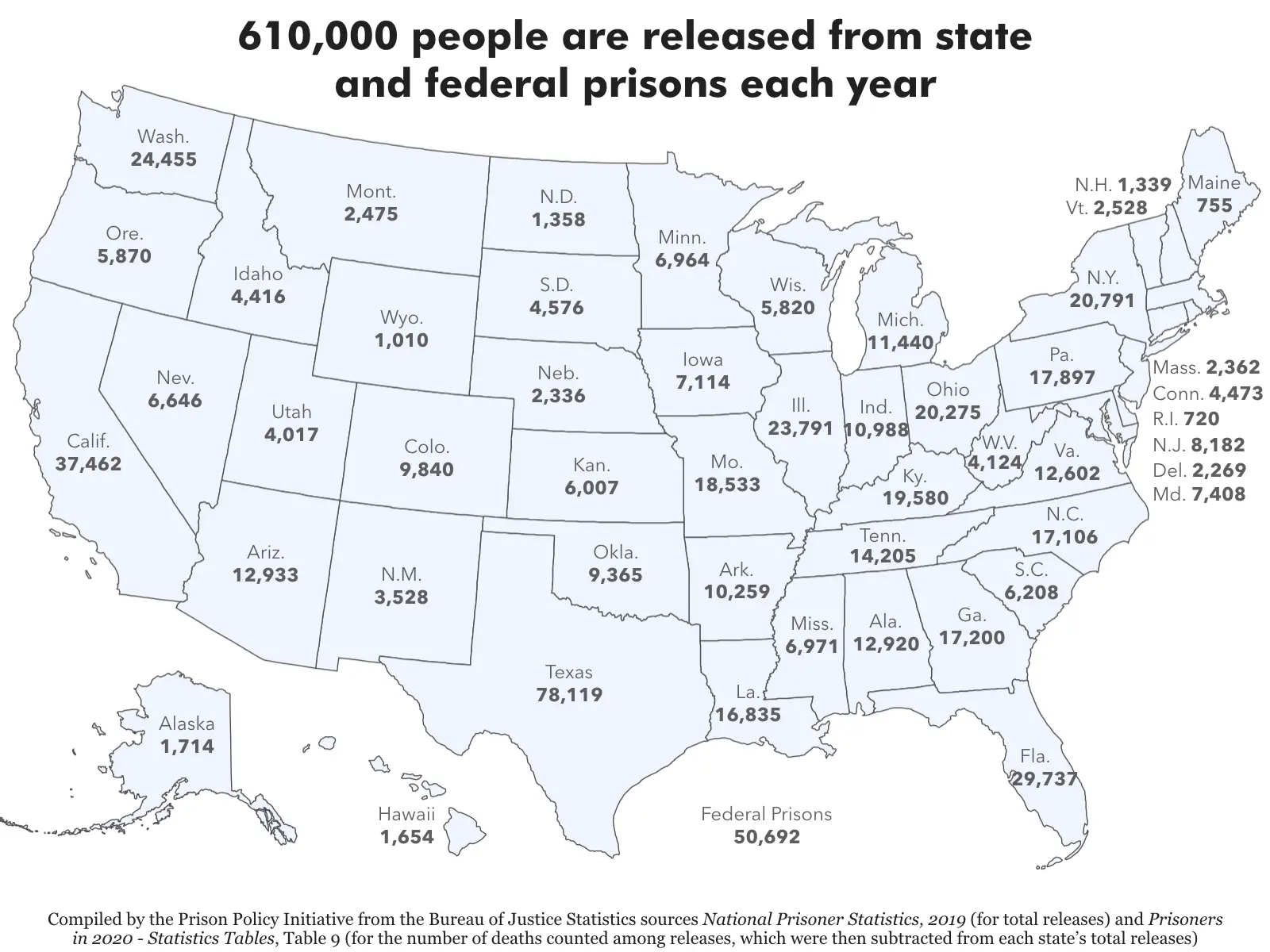Each year the California Department of Corrections and Rehabilitation releases 35,000 individuals from prison and 900,000 from jails. The majority of these individuals lack equitable, statewide access to what many would consider basic needs, like food, housing and employment, and other supportive services needed to create a thriving transition. In fact, surveys recently released individuals show that one in five formerly incarcerated individuals has limited access to adequate food. The challenges I faced during my transitioning home are similar to the thousands of Californians who have also struggled to return to their communities.
I entered the legal system when I was 17 and spent 23 years in it. That means I got an education in the criminal legal system and learned valuable life skills inside the walls of a prison versus from my community. With that lack of education, socialization, comes severe challenges when returning home. It's a daunting change – to say the least – finding a job, a place to live, and rebuilding relationships with loved ones. These changes are all amplified by poverty and food insecurity. After being released from prison or jail, many of us lack substantial support systems.
I grew up in Mendocino and battled a history of drug use and had experienced extensive trauma. I was 42 years old when I left prison and had to rebuild my life and move forward. I was able to secure a temporary job and begin focusing on reintegrating into society. Although I was able to start my transition with a car and a job, this is far from the norm for most individuals when they leave prison or jail. My temporary job, access to a car, and housing were not a result of support I received from the California Department of Corrections - they were made possible because of supportive friends and family. As I prepared to leave prison, there were no conversations about what was next or how to connect to services.
"The majority of Californians who have been impacted by the legal system, including myself, have felt a lot of shame as we’ve returned to our communities without a clear plan."
Today, I mentor other women leaving the legal system, and I continue to see the cracks in the current infrastructure. There are few, to no state sponsored resources, and the ones that are meant to help are often difficult to access. This lack of support is highlighted by the majority of individuals leaving the legal system who have no job opportunities or connections to the community. The majority of Californians who have been impacted by the legal system, including myself, have felt a lot of shame as we’ve returned to our communities without a clear plan. This stress combined with informational and financial barriers only continue the cycle of poverty and ultimately lead to recidivism.
An essential element of reducing this destructive cycle is access to the food individuals need to thrive. Food insecurity, defined by the United States Department of Agriculture (USDA) “as a lack of consistent access to enough food for every person in a household to live an active, healthy life, widening the barriers to a thriving transition back to community. The current system lacks statewide integration furthering inequity and should be addressed. California has an opportunity to submit the statewide federal waiver necessary to ensure that CalFresh is included in the transition process prior to release from California’s prisons and jails and back to community. Everyone in California should have access to nutritious food. Incorporating CalFresh into the statewide re-entry process is one step of many toward creating a thriving transition for individuals returning home from jail or prison.
Alissa Moore is a Policy & Community advocate and was a 2022 Elder Freeman Policy Fellow with Legal Services for Prisoners with Children, All of Us or None.
More than 189,000 women returned home from CA's prisons/jails in 2019 alone. Having access to CalFresh as a part of their transition process when returning to community is vital to their health and wellbeing.






